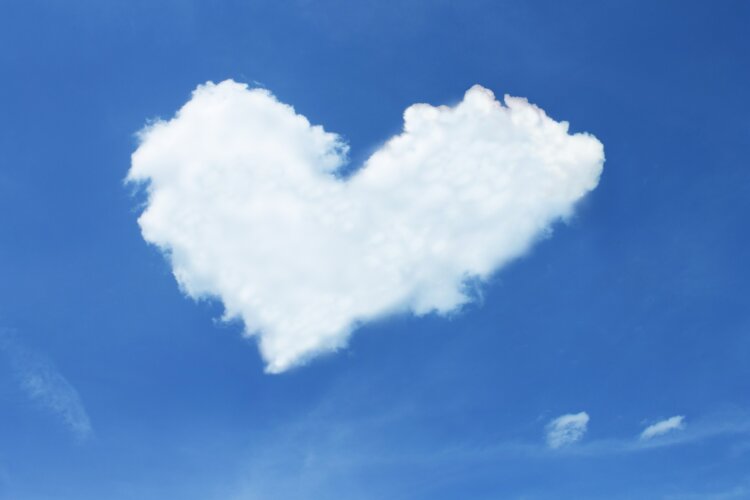
I was having a deep conversation about comfort and solace in times of trouble with a friend the other day when she admitted, “I just can’t get behind the idea of some magic guy in the sky.”
I laughed and said, “Neither do I.”
“Really?” I could hear the surprise in her voice. After all, I’d just been telling her all about my faith life, how I was raised Lutheran and spent my weekends singing in the church choir. How my spiritual upbringing had shaped my worldviews, had made me into the person I was today.
“No,” I told her. “I believe in love.”
“What is that supposed to mean?”
I get that kind of response a lot. The bearded, fatherly figure in the sky has been ingrained into our consciousness through thousands of years of iconography and popular culture. But this image of God comes with so much baggage. It’s this image of God that has excluded entire groups of people, that has been invoked in war, colonialism and even modern politics. This image of God is loaded with so much history of divisiveness, it’s no wonder that millennials are disavowing the church at alarming rates.
But what if God was something so much larger and more intangible than that portrayal? Perennial philosophy teaches us that all religion is basically seeking the same thing: unity, justice and love. Franciscan monk and spiritual teacher Richard Rohr refers to this as the Ultimate Reality: “the source, substance and sustenance of all that is. Nothing exists without it. To be removed from this vital connection would be to instantly cease to exist. We exist because we are in relation to Ultimate Reality, or, more precisely, because we exist within it.”
Perennial philosophy teaches us that all religion is basically seeking the same thing: unity, justice and love.
Call it Ultimate Reality, call it God, or, as I do, call it Love. Because what we know about love is that it flows in and through all of us. It’s right there in front of us, it connects us to one another. It is a powerful, unifying energy. Our God of love is for all people, for every living thing.
If our God is love, that great force of relationship, creation and oneness, than we were created out of love, to be love in this world. As Richard Rohr explains, we were made “to love what God loves, which is everything and everyone, including you and including me!” I can’t think of a better way to strive to exist, to attempt to orient one’s whole self to living out of this love mindset.
This also means that every living thing was born out of this loving, creative force. We are all “Children of God” so to speak. This means that what we do to one another, we are doing to ourselves, to the whole of creation. When we love the other, we love ourselves, we are in union with that great Love of the world. Imagine if we to took this mindset out into our daily lives, or homes and workplaces, our communities. Imagine if we kept love as a central focus in our conflicts, if we remembered that we are all equally and divinely loved.
If God is love then there are really no right or wrong answers in terms of how to manifest this love in the world, just that we are all capable of doing so. I find this notion incredibly freeing. Perhaps we can stop arguing about what to believe, who’s in or who’s out, and start thinking about how we can love better, serve better, how we can change our world together.


Grok Nation Comment Policy
We welcome thoughtful, grokky comments—keep your negativity and spam to yourself. Please read our Comment Policy before commenting.